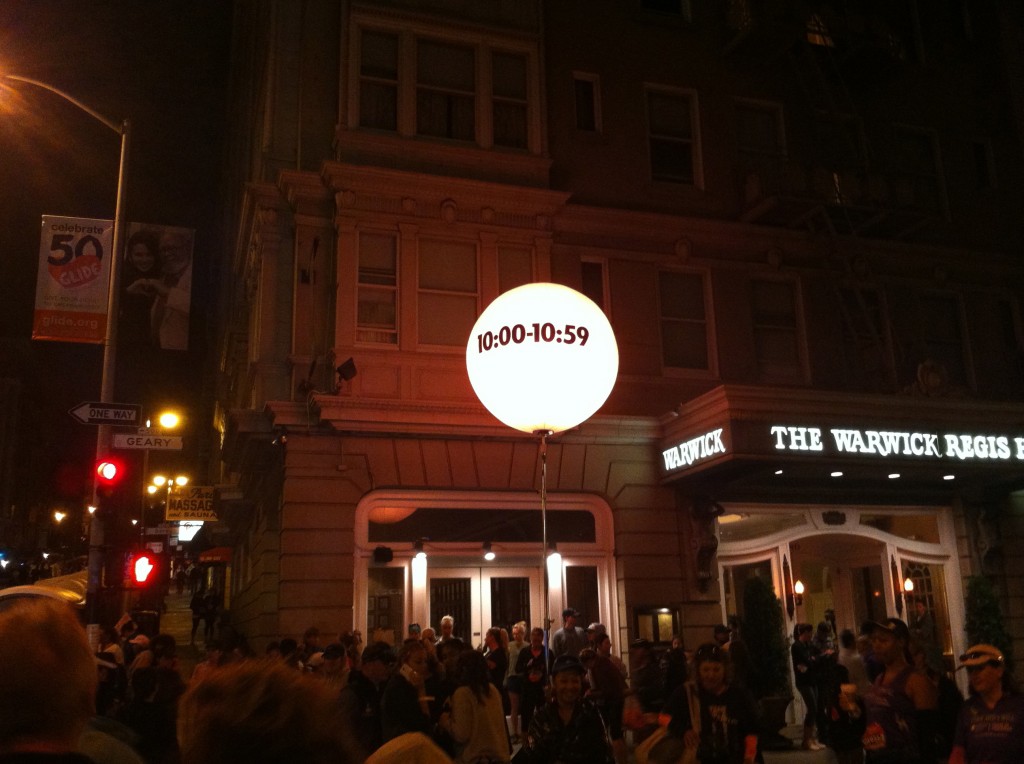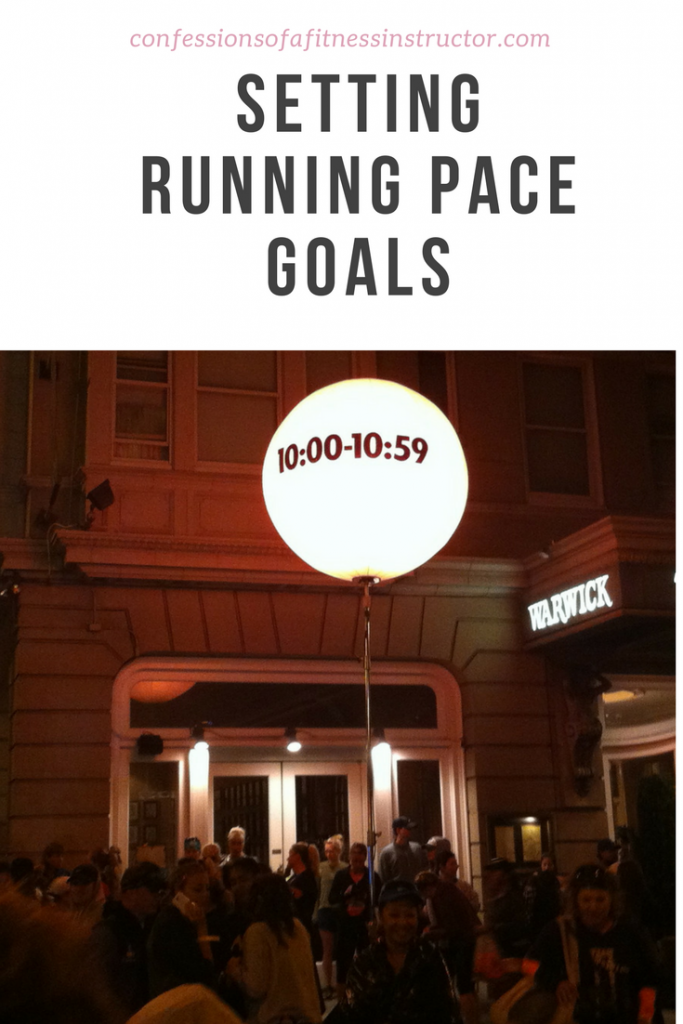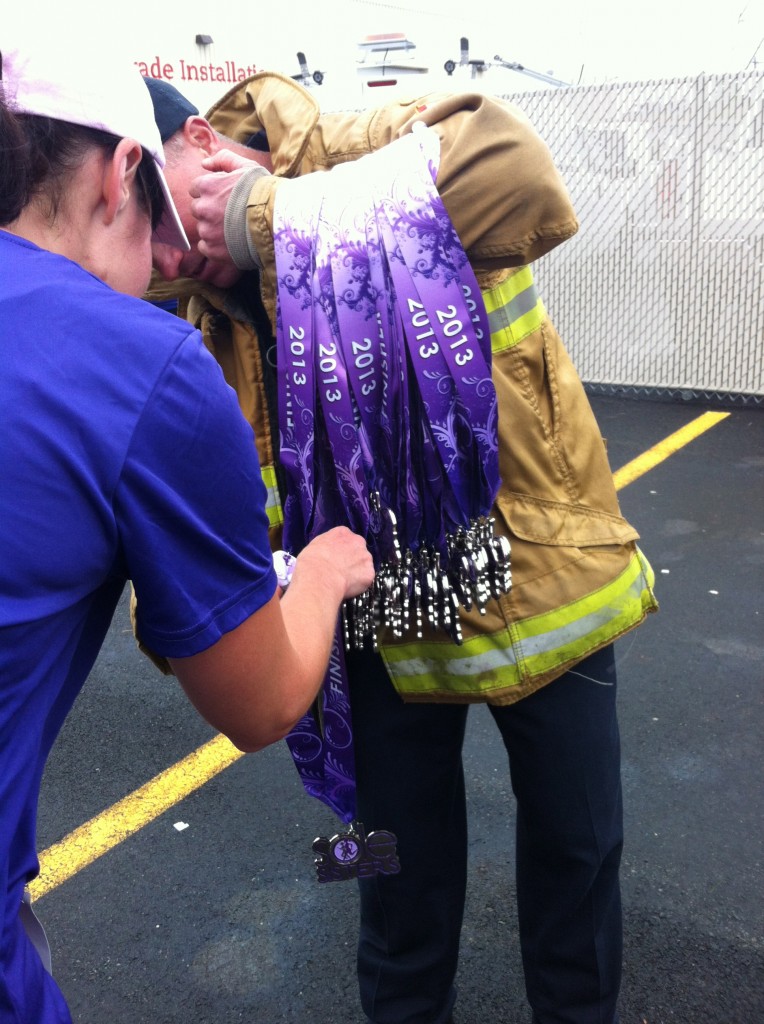This year I’ve been hearing a lot of newer runners chatting about signing up for races, or distances they haven’t run before, and how quickly they hope to finish them. It seems like I’ve been hearing a lot of talk about pacing like this, “I ran a 5K in 26 minutes, so I should be able to run a 10K in 52 minutes.” While I won’t deny there are certainly people who can maintain a 5K pace for 10K (or longer), that isn’t something most people can expect and I’m concered they don’t know how to set running pace goals might not be expecting too much of themselves right out of the gate.
Don’t get me wrong, I think it’s awesome to have a stretch goal, but if you run a 5K in 30 minutes and your goal is to run a 1/2 marathon in 2 hours, well without a lot of speed work built into your training, you’re probably going to be disappointed, and I hate the idea of people being disappointed when they cross the finish line, especially if it’s one of their first races.
So I decided to do what bloggers do – write about it. First I surveyed a bunch of runner friends to get their best race times in the 5K, 10K, HM and FM distances so I could determine how distance affects the average speed of a runner. And because I’m surrounded by super awesome people, in less than 24 hours I had 18 sets of data, and was also told about the McMillan running calculator which helps you calculate running paces for difference distances.
So instead of calculating everything from scratch, I decided to use the McMillan calculator to calculate how fast it thought each runner I had collected data on would run a 10K, HM and FM based on their 5K personal best. My aim here was to see how accurate the calculator is when dealing with an average runner since it didn’t make sense to calculate my own equations to do the same thing when this calculator exists.
When I calculated 10K distances based on the 5K results of my group of runners, the time it calculated was within 30 seconds of the actual finish time for 44% of the runners surveyed. For the other 66% it calculated a time that was on average 3:20 minutes faster than their actual time.
When I calculated half marathon distance based on the 5K results, the time it calculated was within 1 minute of the actual finish time for 18% of the runners surveyed. For the other 82% it had calculated a time that was on average 2:45 minutes faster than their actual time.
And finally, when I looked at full marathons, based on 5K pace results, the time the McMillan calculator calculated was within 1 minute of the actual finish time for 8% of the runners surveyed. For the remaining 92% the calculated time was on average 33 minutes faster than their actual time.
I found these results super interesting because those are the types of results I would expect if you took your 5K time and simply doubled it for a 10K pace, or quadrupled it for a half, etc. The McMillan calculator already has calculated in the expected decline in speed over time so without having done this little experiment I would have expected it to be pretty on average much closer to the actual race times. It just goes to show that a lot of things happen out on a race course that a calculator just doesn’t take into consideration (bathroom breaks, injuries, etc.)
So the moral of this little running pace story is:
1) Taking your 5K time and assuming you can maintain that same pace for a longer distance race (without substantial speed work in between) is probably going to leave you disappointed on the other end of the finish line.
2) Using the McMillan calculator is a fantastic reference because it takes into consideration the reduction in speed experienced as the running distance becomes longer. However, for the average person, it seems to still generate a pace that is faster than most people can maintain over that distance (I say most because there were people who actually ran their best times in all distances faster than the time generated by the calculator), so if you are using it to calculate a goal time for a race, it is a good idea to plan on that time as your stretch goal.
And the real moral of the story is, regardless of your finish time, if you complete a race (regardless of the distance) you should feel SO PROUD regardless of your finish time. Running in a race is something only a small percentage of the population will ever do, so enjoy that moment when you cross that finish line!!
Special shout out to my fellow FitFluential ambassadors that hooked me up with their personal best running times so I could write this post! Let me tell you, I am honoured to be surrounded by so many super speedy runners!




This is such a helpful post, especially for new runners. I find that a fast 5k or even 10k can make us runners feel invincible but there is a HUGE difference between running 3.1 miles vs 13.1!
Thanks for your comment! Yes I think it’s really easy to set slightly unrealistic expectations, especially as a beginner.
Enjoyed the article! I agree that setting too ambitious of goals can be detrimental to confidence also. For instance I will never run 13 miles lol. I’m good with the 3-5 mile runs but I have no dreams of running really more than that.